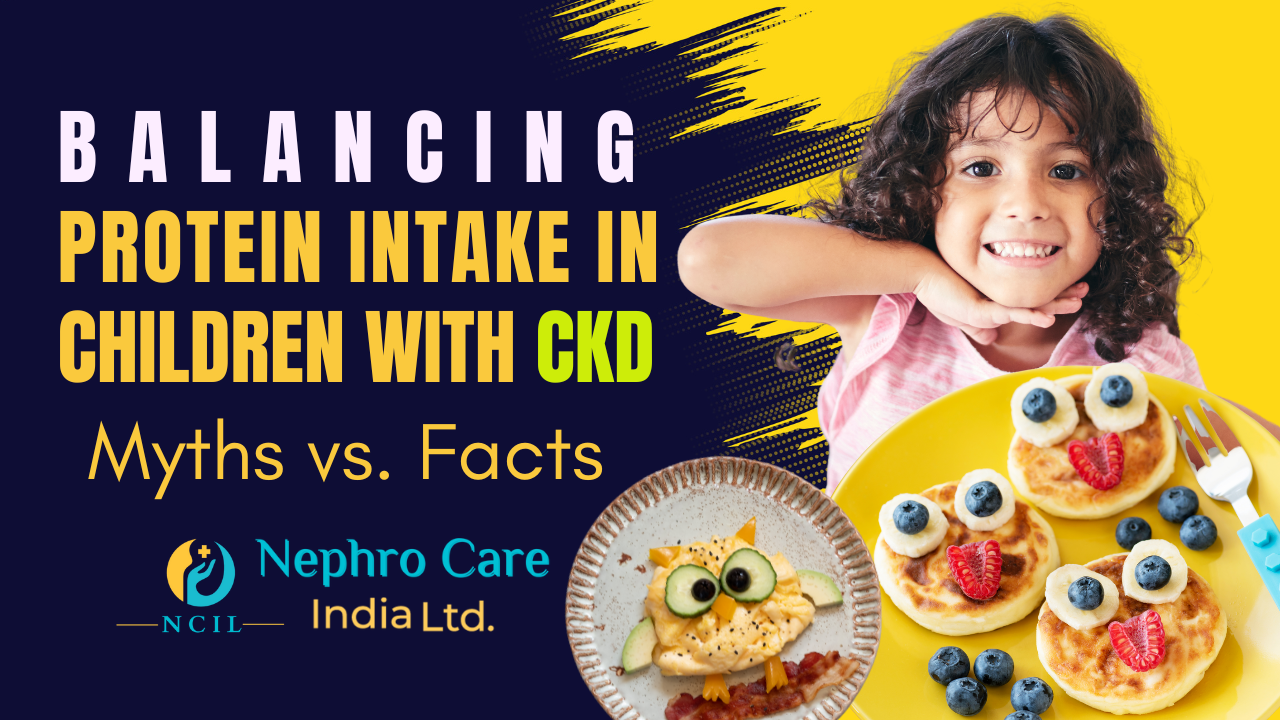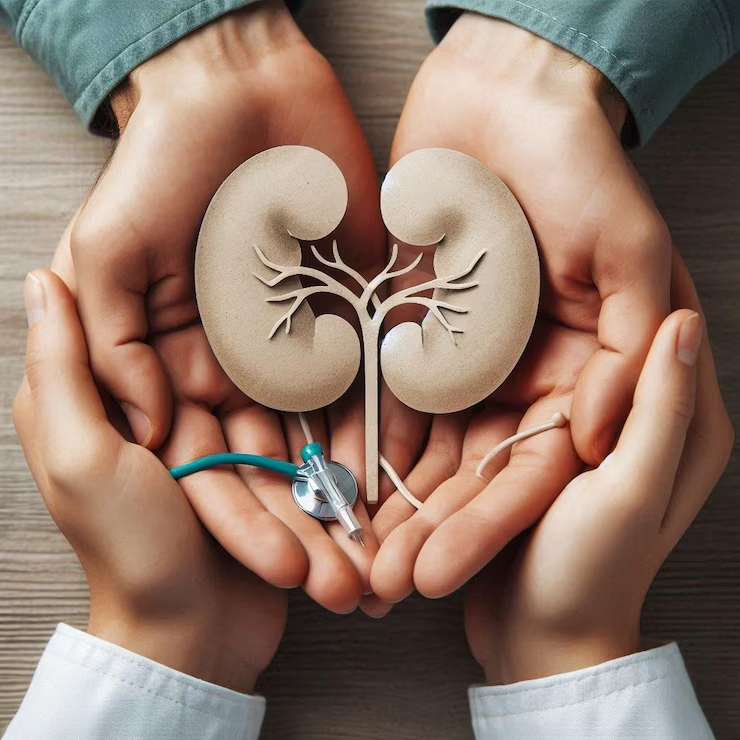
- 329
- 0
Balancing Protein Intake in Children with CKD: Myths vs. Facts
Chronic kidney disease (CKD) in children is a serious and progressive condition characterized by a gradual decline in kidney function over time. The kidneys are essential organs responsible for filtering waste products, excess water from the blood, balancing electrolytes, and maintaining overall health. When kidney function deteriorates, it can result in the accumulation of toxins and disrupt the body’s delicate balance, leading to various health complications. Proper management of CKD, particularly through dietary interventions, is crucial for maintaining the health and well-being of affected children.

Dietary Management in Pediatric CKD
Diet plays a pivotal role in the management of CKD in children. The primary objectives of dietary intervention include:
- Reducing Kidney Workload: Dietary adjustments can help minimize the buildup of waste products. They also address electrolyte imbalances, alleviating the strain on the kidneys.
- Supporting Growth and Development: Ensuring that children with CKD receive adequate nutrition is vital for their physical and mental development. A balanced diet can promote healthy growth and prevent malnutrition.
- Preventing Complications: Proper dietary management can help control secondary conditions associated with CKD, such as anemia, bone disorders, and fluid imbalances. This, in turn, improves the overall quality of life for patients.
However, dietary modifications in pediatric CKD, particularly concerning protein intake, require careful consideration. Protein is a critical nutrient for growth, but its intake must be tailored to the child’s specific needs to avoid exacerbating the condition.
To get any assistance on dietary management for your child you can join our renal diet group
Addressing Common Myths About Protein and CKD
Despite the importance of protein management in CKD, several misconceptions persist, which can lead to ineffective or even harmful dietary practices. Let’s debunk some of these myths and understand the facts.
Myth 1: All children with CKD need strict protein restriction.
Fact: Protein intake should be individualized. While reducing protein can help manage CKD, excessive restrictions may result in growth retardation and impaired development. Organizations like the National Kidney Foundation provide guidelines for protein intake in children with CKD. These guidelines recommend tailoring protein consumption based on the child’s stage of CKD. They also emphasize adjusting intake according to specific dietary needs.
Myth 2: A low-protein diet impairs growth.
Fact: Controlled protein restriction, when recommended by healthcare professionals, can help preserve kidney function while still supporting normal growth. Regular monitoring ensures that the protein intake is adequate to support both kidney health and overall development, as outlined by the Kidney Disease: Improving Global Outcomes (KDIGO) guidelines.
Myth 3: Plant-based protein is always helpful for CKD.
Fact: Plant-based proteins are often recommended for their lower phosphorus content. However, they must be balanced with essential amino acids to meet a child’s nutritional requirements. According to research published in the American Journal of Kidney Diseases, a mixed protein regimen may be necessary to achieve this balance. This includes incorporating both plant-based and animal proteins.
Myth 4: Protein restrictions can be managed without professional guidance.
Fact: Properly monitoring and managing protein intake in children with CKD requires specialized knowledge. Pediatricians and renal dietitians work together to create personalized dietary plans for children. These plans ensure children receive adequate nutrition while safeguarding their kidney function, as emphasized in pediatric care guidelines.
For more information on Little Worriers Kidney Stones in Children, please read the link below 👇

Conclusion
Understanding the complexities of dietary management in pediatric CKD is crucial for ensuring the best possible outcomes for affected children. By dispelling common myths and focusing on individualized care, caregivers can help manage the disease effectively, supporting the child’s growth and overall health. Professional guidance is essential in developing a balanced dietary plan that meets the unique needs of each child, ensuring that they thrive despite the challenges of CKD.
References:
- https://www.kidney.org/kidney-topics/nutrition-children-chronic-kidney-disease
Comment
Check Your EGFR
***We Promise, no spam!






